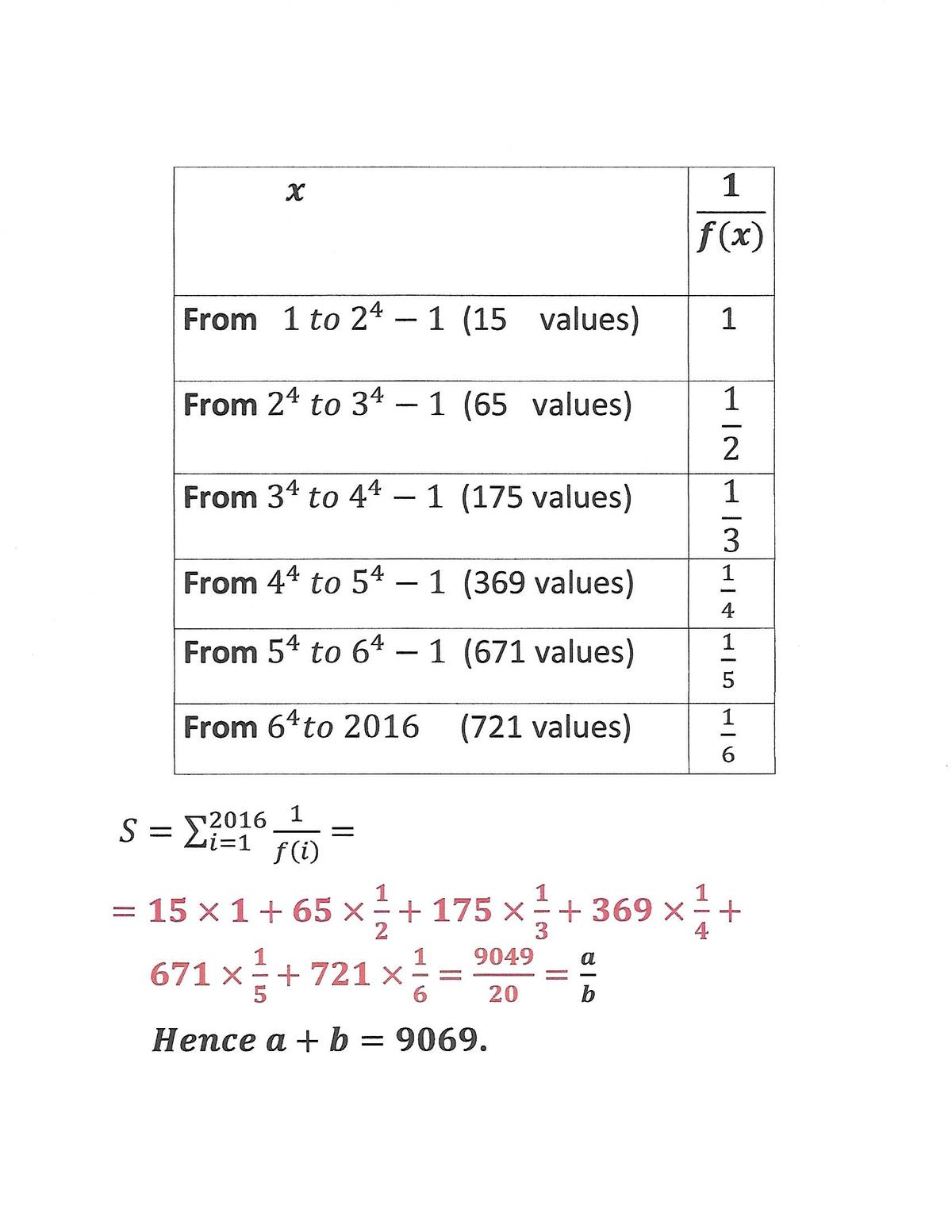Quad Function Sum
Let .
Find = .
can be represented as an irreducible fraction .
Enter your answer as .
The answer is 9069.
This section requires Javascript.
You are seeing this because something didn't load right. We suggest you, (a) try
refreshing the page, (b) enabling javascript if it is disabled on your browser and,
finally, (c)
loading the
non-javascript version of this page
. We're sorry about the hassle.

Let's first calculate S N = i = 1 ∑ N 4 − 1 ⌊ 4 i ⌋ 1 = k = 1 ∑ N − 1 k ( k + 1 ) 4 − k 4 = k = 1 ∑ N − 1 ( 4 k 2 + 6 k + 4 + k 1 ) = 3 2 ( N − 1 ) N ( 2 N − 1 ) + 3 ( N − 1 ) N + 4 ( N − 1 ) + k = 1 ∑ N − 1 k 1 . Since 6 4 − 1 = 1 2 9 5 < 2 0 1 6 < 7 4 − 1 = 2 4 0 0 , we evaluate this for N = 6 , and add 2 0 1 6 − 1 2 9 5 = 7 2 1 times the term 1 / 6 : S = S 6 + 7 2 1 × 6 1 = 3 2 ( 6 − 1 ) 6 ( 2 ⋅ 6 − 1 ) + 3 ( 6 − 1 ) 6 + 4 ( 6 − 1 ) + k = 1 ∑ 5 k 1 + 1 2 0 6 1 = 3 2 ⋅ 5 ⋅ 6 ⋅ 1 1 + 3 ⋅ 5 ⋅ 6 + 4 ⋅ 5 + ( 1 + 2 1 + 3 1 + 4 1 + 5 1 ) + 1 2 0 6 1 = 2 2 0 + 9 0 + 2 0 + 2 6 0 1 7 + 1 2 0 6 1 = 4 5 2 6 0 2 7 = 4 5 2 2 0 9 = 2 0 9 0 4 9 . The answer is 9 0 4 9 + 2 0 = 9 0 6 9 .